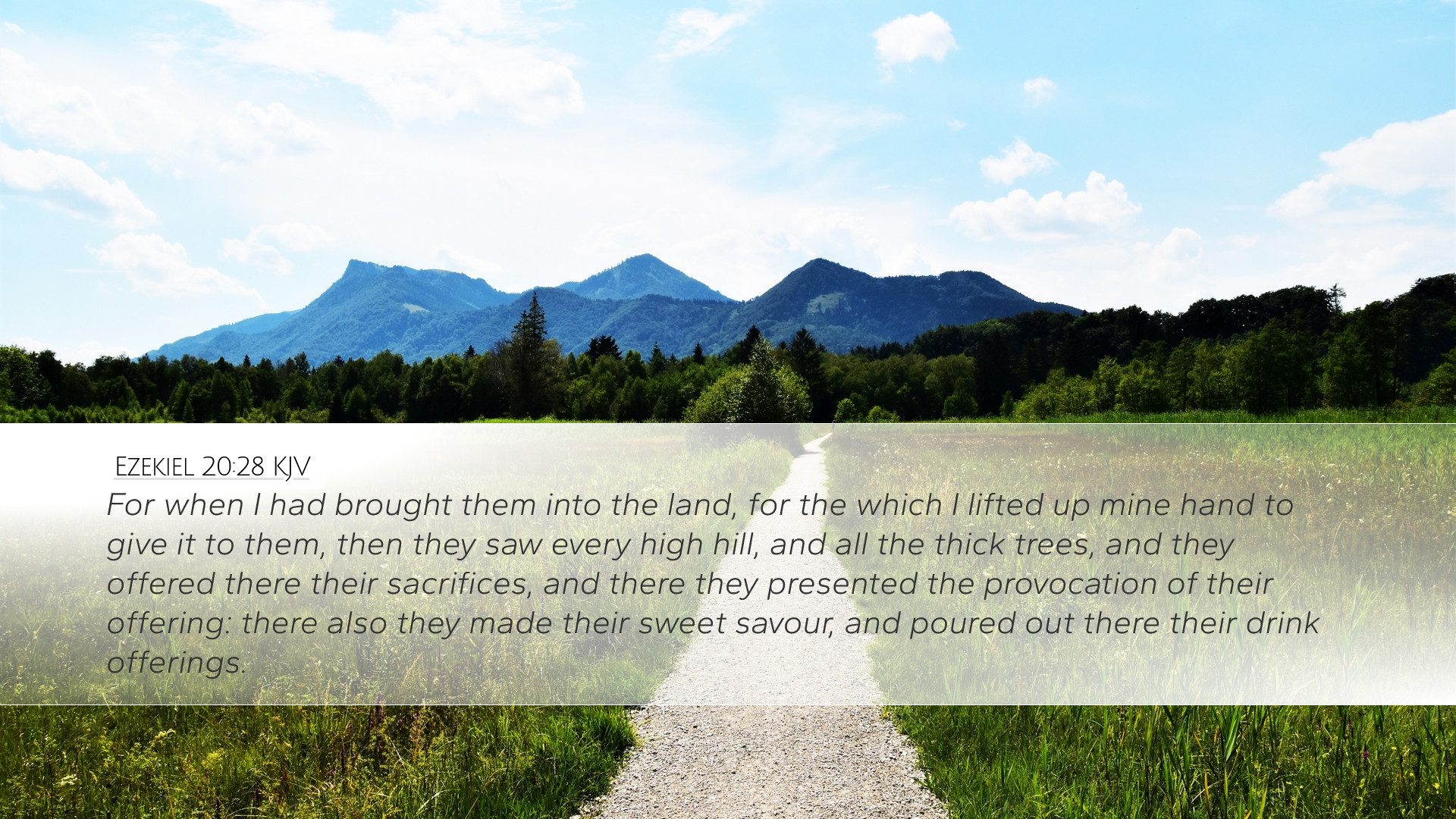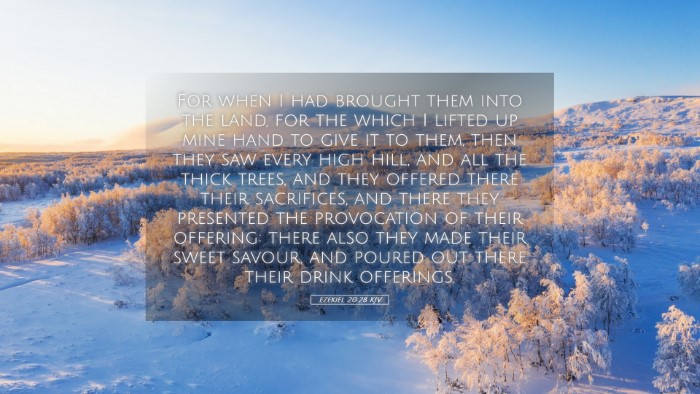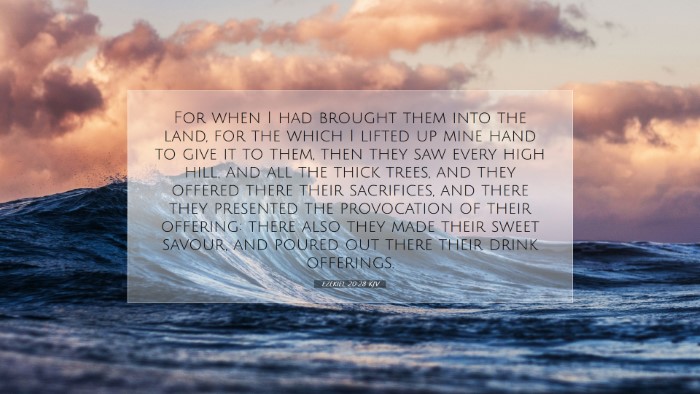Ezekiel 20:28 - Commentaries and Insights
Verse Reference: Ezekiel 20:28 - "For when I had brought them into the land for which I raised my hand in an oath to give them, and they saw all the high hills and all the thick trees, there they offered their sacrifices and there they provoked Me with their offerings; there they set up their sweet aroma and poured out their drink offerings."
Contextual Background
This verse is part of a larger discourse from the prophet Ezekiel, who speaks to a people in exile, reflecting on Israel's history and their recurrent failures in worship and fidelity to God. Ezekiel emphasizes the seriousness of turning away from the worship of Yahweh to engage in idolatry, particularly in the context of the Promised Land.
Commentary Insights
Matthew Henry's Commentary
Matthew Henry highlights several key ideas in this verse:
- God's Faithfulness: The phrase "I had brought them into the land" underscores the faithfulness of God in keeping His promises. He brought the Israelites into a land promised to their forefathers, demonstrating His unchanging nature and commitment.
- Idolatry's Allure: The mention of "high hills" and "thick trees" signifies the locations where the Israelites performed acts of worship that were in direct violation of Yahweh's commandments. These natural sites often represented fertility and pagan deities, showing the people’s inclination toward idolatry despite the covenant they had with God.
- Provocation of God: The sacrifices offered on these high places were an act of rebellion. By engaging in these practices, Israel provoked God's anger as they misused the blessings of the land to serve other gods, illustrating the depths of their spiritual unfaithfulness.
Albert Barnes' Commentary
Albert Barnes provides additional depth to this passage:
- The Nature of Sacrifices: Barnes points out that the sacrifices made in the high places were not only a rejection of proper worship but highlighted the people's confusion regarding the true nature of God’s holiness. They attempted to blend their worship of Yahweh with ancient practices, showing a lack of understanding of God's demands.
- Covenantal Betrayal: The covenantal context of the statement is crucial; by turning to idolatry, they essentially rejected their relationship with Yahweh and did so in the very land He provided for them. This signifies a deliberate turning away from their identity as chosen people.
- Consequences of Actions: Barnes emphasizes the inevitable consequences of such choices. The act of worshiping on high places ultimately led to the nation's downfall, as it distanced them from divine favor.
Adam Clarke's Commentary
Adam Clarke expands the interpretation of this verse through historical reflection:
- Historical Recapitulation: Clarke reflects on the Israelite’s history, noting that they had a consistent pattern of engaging in idolatrous practices, particularly after settling in Canaan. He describes how the lush landscapes and fertility of the land seduced them into false worship.
- God's Reaction: The phrase "provoked Me with their offerings" indicates a profound breach of trust. Clarke interprets this as God’s anguished reaction to their decisions, seeing them as a betrayal of the relationship established at Sinai.
- Higher Implications: Clarke points out that this passage serves as a warning against spiritual complacency and the danger of incorporating secular values into worship. It calls forth the question of what it truly means to be in covenant relationship with God.
Theological Reflection
This verse invites a collective reflection on the nature of worship and fidelity in the life of believers:
- Idolatry Defined: Idolatry can take many forms beyond physical images. It includes anything that takes precedence over God in a believer's life. This verse prompts a reflection on modern-day idols that might distract believers from true worship.
- The Danger of Familiarity: The high hills and thick trees can represent the familiarity of the earthly: when God's people become too comfortable in their surroundings, there is a risk of losing sight of His holiness and falling into complacency.
- The Importance of Remembrance: The narrative encourages a continual remembrance of God’s faithfulness and the importance of guarding against practices that deviate from pure worship. For pastors and theologians, this is a call to instruct and guide congregations in the way of God’s truth.
Conclusion
Ezekiel 20:28 serves as a poignant reminder of God's persistent desire for an exclusive relationship with His people and the tragic consequences of idolatry. The insights garnered from public domain commentaries remind us of our collective responsibility to adhere to the covenant we share with God through Christ. As we reflect on this text, may we endeavor to worship Him in spirit and truth, leaving behind the distractions and temptations that lead us astray.


